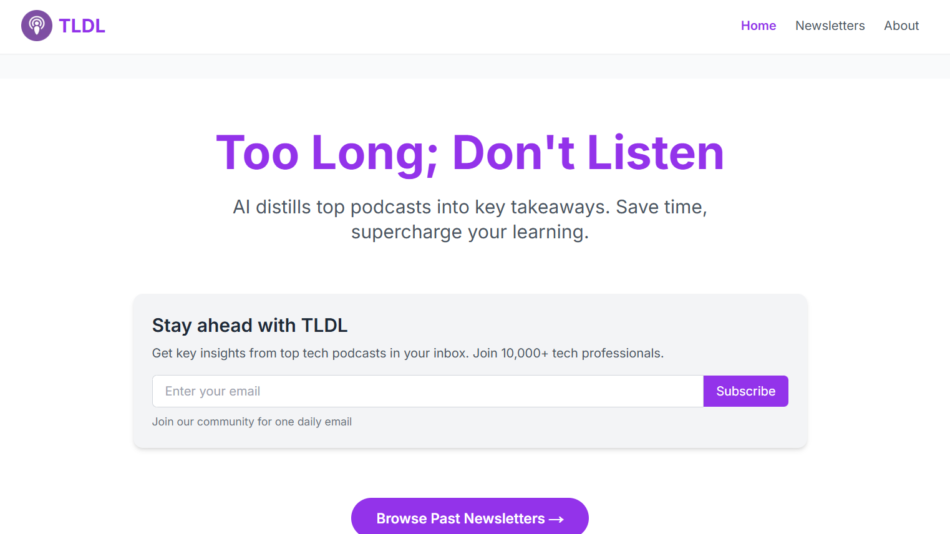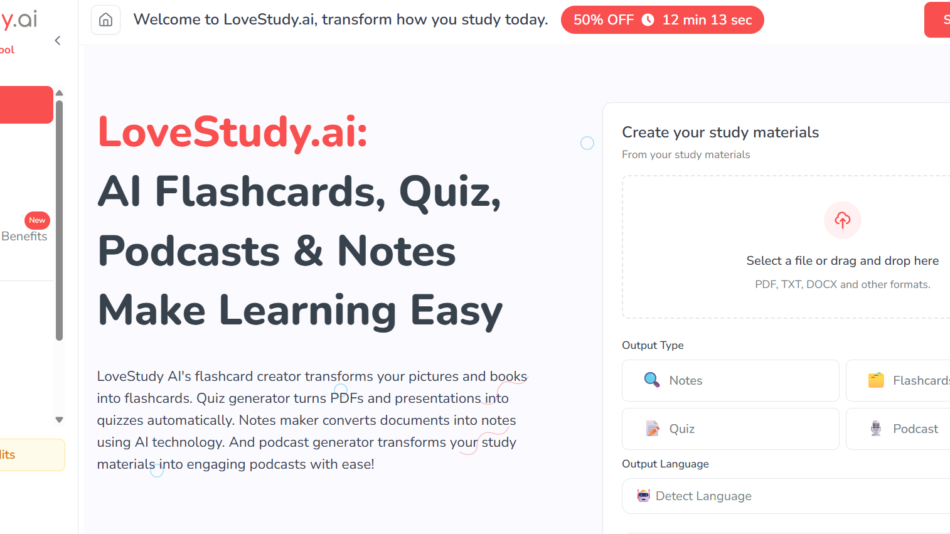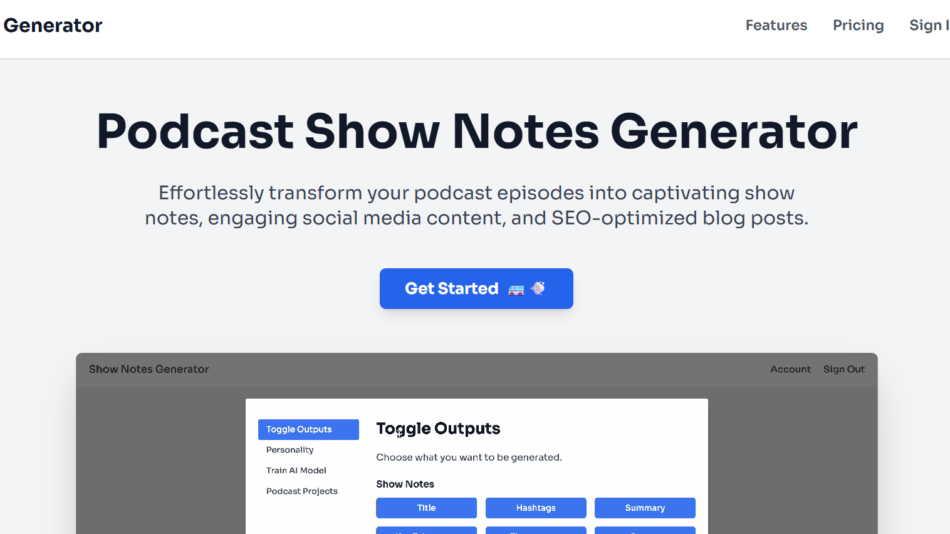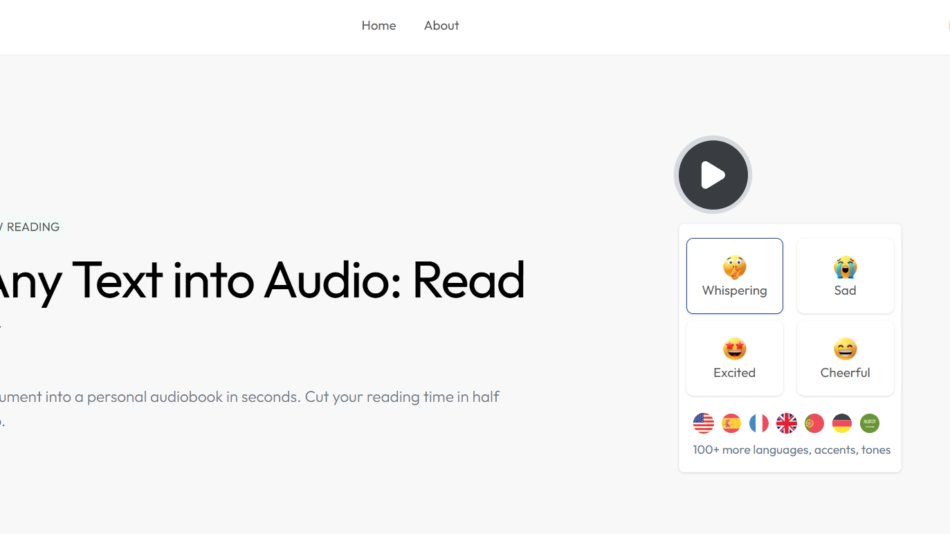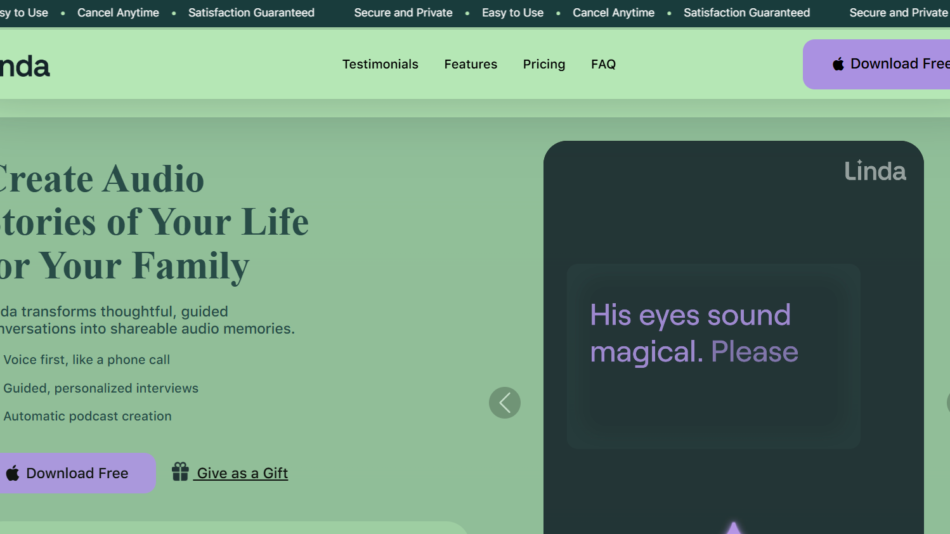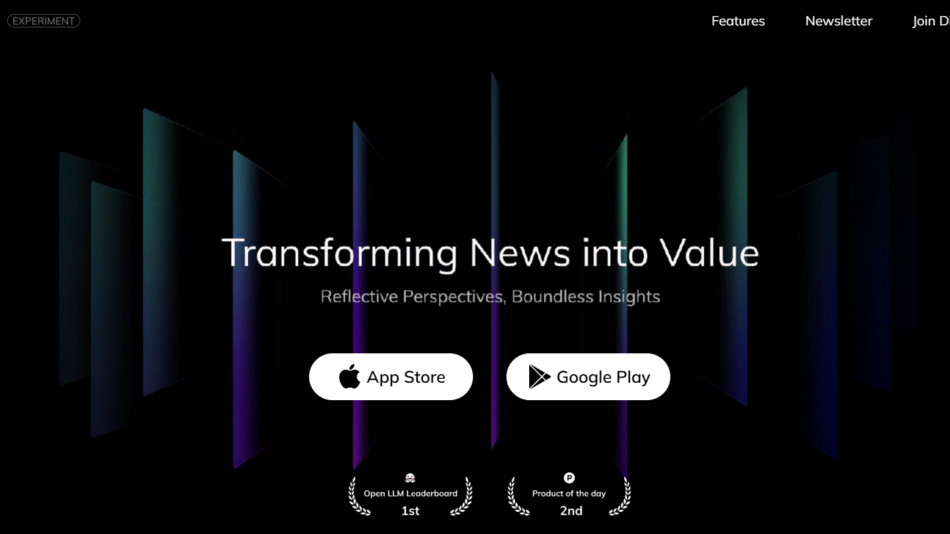Podgen is an AI-powered assistant designed to help podcasters streamline the planning, scripting, and promotion of their podcast episodes. Built to reduce the manual work involved in content creation, Podgen assists with everything from episode titles and descriptions to SEO-optimized show notes, social posts, and guest questions.
Rather than spending hours brainstorming, writing, and formatting, podcasters can use Podgen to generate high-quality, structured content instantly. Whether you’re a solo creator, podcast editor, or part of a content marketing team, Podgen helps make the podcast workflow faster, more efficient, and more professional.
It’s designed to integrate smoothly into existing podcast workflows and provides content that can be copied, customized, and used across platforms including podcast directories, social media, newsletters, and blogs.
Features
Podgen generates compelling, SEO-friendly episode titles based on your topic, guest, or content theme. These titles are optimized to attract listeners and increase click-through rates on platforms like Apple Podcasts and Spotify.
Users can enter a brief topic summary or guest name, and Podgen will generate full-length episode descriptions and summaries. These are ideal for publishing in podcast directories or sharing on websites.
The platform creates structured show notes, including timestamps, bullet points, and key takeaways. These notes help with content navigation and repurposing.
Podgen generates a list of tailored interview questions based on your guest’s profile, helping you prepare better conversations without research time.
It also provides social media captions, promotional blurbs, and content ideas for platforms like LinkedIn, Twitter, and Instagram.
Users can enter keywords or themes, and the AI will suggest full episode outlines to help structure discussions and ensure a logical flow.
How It Works
To get started, users log into the Podgen platform and enter basic details about their upcoming episode. This might include the episode topic, guest name, target audience, or main theme.
Once submitted, Podgen uses AI to generate a complete package of content assets. These typically include a headline, episode summary, description, show notes, and suggested questions or talking points.
Users can review, edit, and copy the content into their podcast hosting platform, website, or social media scheduler. Each piece is fully editable, giving users control over the tone and final output.
The process usually takes less than five minutes and can be repeated for each new episode or batch-created for an entire content calendar.
Use Cases
Solo podcasters can save hours per week by automating episode planning, descriptions, and promotion materials.
Marketing teams running branded podcasts can maintain consistent tone and formatting across multiple episodes and hosts.
Podcast agencies can scale their client delivery by using Podgen to generate assets quickly for multiple shows at once.
Content strategists and social media managers can use Podgen to align podcast content with overall marketing goals, repurposing episodes into multiple formats.
Interview-based shows can streamline guest research and preparation using AI-generated questions that match the guest’s background and expertise.
Pricing
As of the latest information on the official website, Podgen offers a freemium model:
Free Plan: Includes limited monthly content generations with access to basic features like title and description generation. Suitable for new users or casual podcasters.
Pro Plan: Offers unlimited content generation, access to advanced features like show notes, promotional content, and full episode scripting. Pricing starts at $12 per month.
Custom Plans: For podcast studios, agencies, or enterprise users who need multi-show support and team features, Podgen offers tailored packages upon request.
Users can start with the free version and upgrade as their needs grow. Payment is billed monthly with the option to cancel at any time.
Strengths
Podgen saves significant time and effort by automating the most repetitive and writing-heavy parts of podcast production.
Its ability to generate well-structured, professional-quality content helps elevate the branding and discoverability of each episode.
The tool is easy to use, even for those with no experience in copywriting or content marketing.
It supports creative ideation, helping hosts come up with angles, hooks, and outlines when facing creative blocks.
Podgen is affordable and accessible to indie podcasters, small teams, and professionals alike.
Drawbacks
The quality of AI-generated content can vary depending on the inputs provided, meaning some human editing is still required for tone and accuracy.
The platform does not currently offer audio editing, transcription, or video clip generation, so it’s focused purely on written content.
More advanced features such as integration with podcast hosts, analytics platforms, or CMS tools are not yet available.
Users looking for deep branding customization, visual templates, or multi-language support may find limitations depending on their needs.
The free plan is relatively limited in generation credits, which may not meet the needs of frequent podcasters.
Comparison with Other Tools
Compared to tools like Castmagic, Podium, and Podscribe, Podgen is focused on written content planning and promotion, rather than post-production transcription or audio editing.
Castmagic offers transcription and clip generation, while Podgen focuses more on pre-production scripting and content creation.
Podscribe is analytics-focused, providing SEO and growth data, whereas Podgen helps with the creation of content assets that feed those growth channels.
While ChatGPT and similar tools can be manually prompted to do similar tasks, Podgen provides a streamlined, structured, podcast-specific interface that simplifies the process and reduces manual prompting.
Podgen’s focus on podcast-specific workflows and simplicity makes it well suited for creators who need speed, structure, and clarity in their pre- and post-episode content.
Customer Reviews and Testimonials
Early users of Podgen have reported saving significant time on podcast planning and promotional writing. Many podcasters appreciate how the platform helps them stay consistent with publishing schedules without creative fatigue.
Solo creators highlight the usefulness of the AI-generated episode outlines and guest questions, especially when preparing for interviews.
Agencies and podcast editors say that Podgen helps them deliver client content faster and with more consistency.
Feedback suggests that the tool is especially useful for podcasters who juggle multiple roles, as it removes the burden of having to be both a creator and a marketer.
Some users have requested future features such as automated publishing integrations, multi-user support, and custom brand templates, which may be on the platform’s roadmap.
Conclusion
Podgen is a practical and affordable AI tool for podcasters who want to save time, streamline their workflow, and improve the quality of their episode content and promotion. Whether you’re just starting your podcast or managing multiple shows, Podgen simplifies the planning and publishing process with AI-generated titles, descriptions, outlines, and show notes.
Its focused feature set, ease of use, and pricing make it a valuable addition to any podcaster’s toolkit. By reducing the manual workload and boosting consistency, Podgen helps creators stay focused on what matters most—delivering great conversations and stories to their audience.

